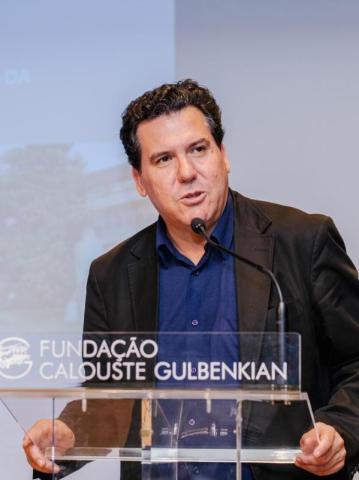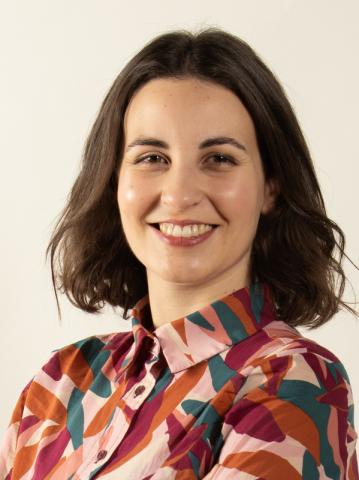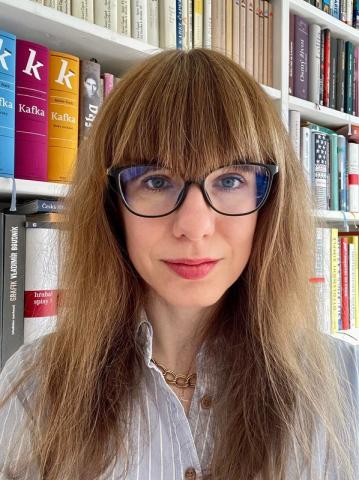The Public Service Media Policies (PSM) Working Group will be holding online elections for two co-chair and one vice-chair positions, for the term 2025 - 2029.
The elections will be held online from 7 to 21 May using the SurveyMonkey platform.
Individual members and representatives of institutional members in good standing, who are also registered as members of the Public Service Media Policies Working Group by 5 May are eligible vote. Voters will receive a voting link on 7 May.
To verify if you are a member of the PSM Working Group, log in to your IAMCR account and select “My Sections and Working Groups” from the menu.
View the candidates and read their statements below.
Read about the Public Service Media Policies Working Group
More information and timeline at https://iamcr.org/s-wg/elections2025
Candidates
For Co-chair:
- João Paulo de Jesus Faustino, University of Porto, Portugal
- Marta Rodríguez Castro, Universidade de Santiago de Compostela, Spain
For Vice-chair:
Statements
For Co-chair

João Paulo de Jesus Faustino, University of Porto, Portugal
I, João Paulo de Jesus Faustino, Professor and Director of the master’s degree in communication and management of the Creative Industries at the Faculty of Letters (Department of Information and Communication Sciences) of the University of Porto, hereby declare my interest in applying for the position of Co-Chair, Public Service Media Policies Working Group, of the International Association for Media and Communication Research (IAMCR).
In the last few years, I have been conducting and presenting research at annual conferences organized by IAMCR and RIPE (as well as local organizers) focused on governance and public media service management, combining academic knowledge with practical experience as a member of the permanent committee of RTP -Portuguese Public Broadcaster. I am co-editing (with Gregory Loew and Marta Castro) the book Public Service Media for Innovation and Sustainability, based on works presented at the RIPE Conference (Lisbon, 2024) that Westminster University will publish by the end of 2025.
For these reasons, I have strong motivation, experience, and research in the area, so I hope to add value to the Public Service Media Policy Working Group. I am very comfortable with the tasks that you mentioned in this case. And, yes, the most significant advantage is the possibility of sharing knowledge and reinforcing our international networks. So, I believe that, additionally the normal and current activities of the Public Service Media Policies Working Group, it should be possible to create additional value in the following dimensions:
- I have a good international database to promote IAMCR and our Division, and their activities.
- I own a book publishing company (www.mediaxxi.com), and I could sponsor books related to PSM.
- We could organize small events or seminars - online or physical - in some countries and with cooperation with local or European organizations.
- If necessary, I have a staff member who can help with additional tasks.
- I was involved in other international associations, and we can promote partnerships.
The work I have been doing combines academic knowledge with the practical experience that comes from having worked for several years in the media industry, including in public service media. As well as being a university lecturer, I am a collaborator and member of the permanent committee of the Opinion Council of RTP - Radiodifusion Pública Portuguesa.
João Paulo de Jesus Faustino
Oporto, April, 3, 2025

Marta Rodríguez Castro, Universidade de Santiago de Compostela, Spain
Dear colleagues,
I am pleased to submit my candidacy for the position of co-chair of the Public Service Media Policies Working Group at IAMCR. As a researcher, my work focuses on the role that public service media play in the media ecosystem and the public sphere. Through research, I seek to answer some of the questions I ask myself most frequently: Are our public service media functioning well? How can they improve? How can we help ensure they remain relevant and truly work towards public service?
I try to answer some of these questions through involvement in various scientific research projects, collaborating with public service media, and, most importantly, engaging in research associations that allow me to gain new perspectives and stay connected with other scholars. For example, being part of the leadership team of the International Association of Public Media Researchers (IAPMR) enables me to stay up to date with key developments in this field and regularly connect with other researchers.
Public service media are going through a critical moment in which the work of the research community is more important than ever. We must find spaces to connect, collaborate, and amplify the impact of our work, and the Public Service Media Policies Working Group at IAMCR provides the right environment for this. Let’s continue making this working group a place where emerging and senior researchers can connect, fostering diverse perspectives and bringing together local experiences under a global focus.
I would be honoured to work alongside all members of this working group to continue building a strong, engaged, and forward-thinking research community.
Thank you for your consideration.
Marta Rodríguez Castro.
For Vice-chair

Marína Urbániková, Masaryk University, Czech Republic
I am writing to express my interest in the position of Vice-Chair of the Public Service Media Policies Working Group within IAMCR. As a media scholar with a strong focus on public service media (PSM), I combine academic research with a commitment to contributing to policy discussions. I see great value in PSM as a policy project—especially in today’s conditions, where audience fragmentation, mis- and disinformation, and the growing dominance of privately owned platforms that are difficult to regulate and hold accountable pose serious threats to the public sphere. In this context, it is all the more important to have a space for international exchange on the challenges and opportunities PSM face. I see the role of Vice-Chair as an opportunity to help facilitate that exchange and support the group’s ongoing work.
In recent years, my work has focused on the adaptability and vulnerabilities of PSM. Most recently, I served as the principal investigator of the project “Rethinking the Role of Czech Public Service Media: Expectations, Challenges, and Opportunities” (2022–2024), funded by the Czech Science Foundation. The project explored how three key stakeholder groups—the public, political actors, and PSM practitioners—envision the future of PSM, as well as their expectations and evaluations. In addition to my research, I engage actively in public debate and policymaking, as I believe scholars have a responsibility to step outside the academic bubble. In 2024, I served as an academic representative in a temporary working group at the Czech Ministry of Culture, focusing on amendments to PSM legislation. That experience confirmed how valuable it is to connect academic insight with policy processes—especially in an area as complex and politically sensitive as media regulation.
My perspective on PSM is also shaped by my focus on the Central and Eastern European region. Across this region, we have seen how fragile the independence of PSM can be. Political pressures, commercial interests, and weak regulation can all threaten PSM’s ability to serve the public. At the same time, there is a great deal of dedication and innovation in the region that often goes underrecognized. While much of the scholarship on PSM still tends to centre on Western Europe, it is important that we also pay attention to the specific challenges and dynamics in other contexts.
I value the work the group has done so far and would be glad to support it in a coordinating role. If elected Vice-Chair, I would work to ensure the group remains a space for open, productive exchange—where members can share challenges, learn from one another, and discuss solutions to the common issues PSM face globally. Whether it is policy reform, governance models, audience engagement, or navigating digital platforms, we all face similar questions—and we can benefit from more regular dialogue and cooperation.
Marína Urbániková, Ph.D.
Assistant Professor
Department of Media Studies and Journalism
Masaryk University, Czech Republic